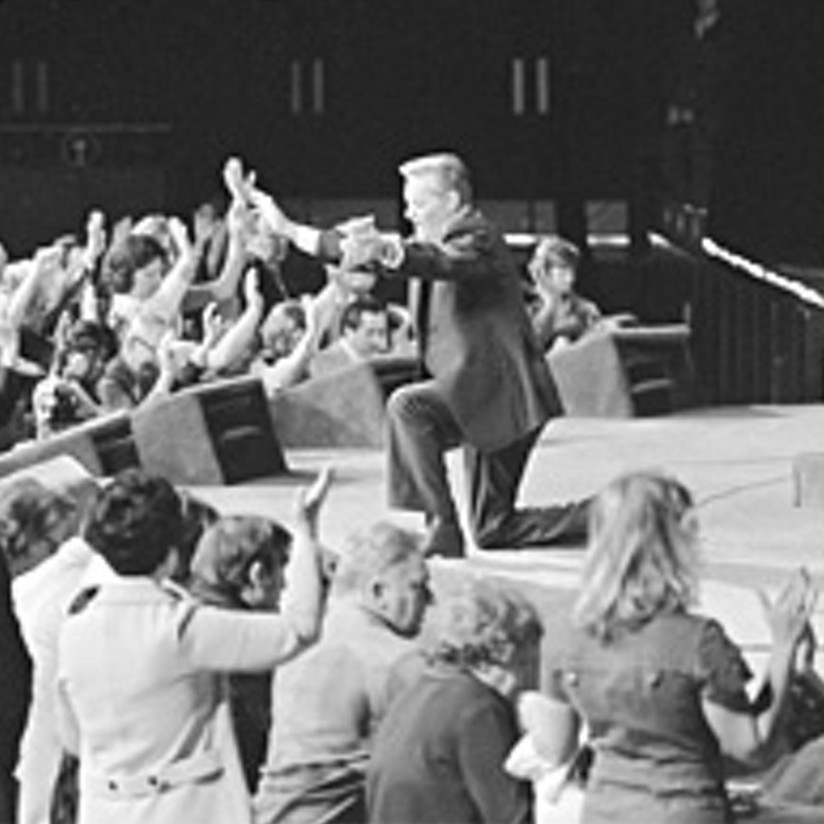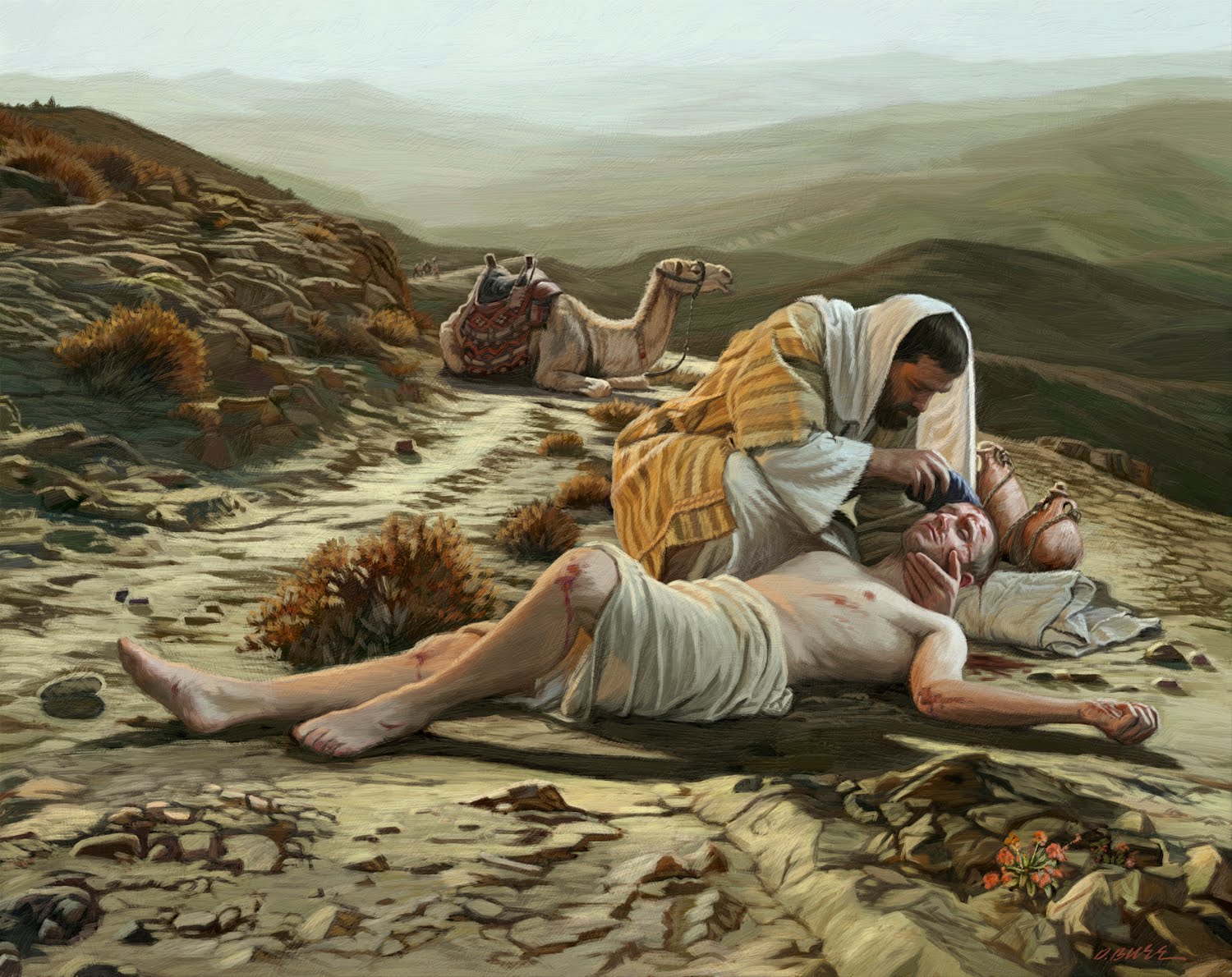
The United States was founded upon the capitalism economic system and it is the machine that runs our daily activities. Capitalism is imbedded into our perspectives when we decide where to live, when to have children, what we want to pursue as a career, down to where we decide to go for lunch. Everywhere we look, on the highways, on television, iPhones, computers, malls-- capitalism has refined its craft in getting us to want stuff, to reach into our pockets and buy happiness.
Our worldview is formed within this system to the point that it has bled into our religious thought.
God or Mammon
Many Christians, if we are honest, believe that money is our savior. Ask yourself how many times do you pray for God to send you money to solve a dilemma you or your family or friends are in? Rather than see God ashaving a thousand ways to solve a problem that have nothing to do with money, our ability to find solutions defaults into the capitalist system of money. "If only I had the money for more vacations," "If only I had the money, I would be able to see my children more often," "If I had money, I would be able to give to charities."
Then in essence, we have substituted faith in God with faith in money. God is the Almighty Banker who distributes money rather than graces.
How often do we see the Heath and Wealth gospel or the Prosperity gospel proclaimed? Many Christians truly feel that when they are not gifted with money that God has abandoned us and those who have money are more blessed and might even be seen as having greater faith!
And yet, this belief prevails among Christians, even fundamentalists, who believe the Bible to be the inerrant Word of God. And in that book Christ says that it is more difficult for a rich man to get into heaven than a camel to go through the eye of a needle. God would never act counter to his own gospel by then making money the savior. When Christ said, "Blessed are the poor" He wasn't speaking hyperbole. There is little in scripture that would indicate God blesses us primarily with money. And yet because of our capitalistic worldview, we are deeply convinced that money can save us from our earthly problems.
In fact, many of us give money to charities and believe that we have done enough to sacrifice (if even that was much of a sacrifice). We think we have done our part if we throw money at a problem instead of expending our lives (our fortunes, yes) as well as our sacred honor. We again see money as the savior.
The Gospel Commodity
The capitalistic system is a system of inspirational sounds and compelling images attempting to get a reaction from the audience. This bleeds over into all Christianity, but especially some evangelical communities.Many Christians, immersed in this system, primarily see the gospel as saying the right, emotionally compelling and convincing words. Very often, evangelicals spread the gospel through a series of meetings or revivals and then move on to the next unsaved group. They believe if they can get you to say the right words in response, then you are saved and the gospel commission has been fulfilled.
These emotional experiences where someone is "saved" can resemble capitalistic sales techniques. In effect the best pastors are those who can sell the gospel in their sermons. There is the pressure sale where the pastor says that the time is now to give your heart to the Lord, don't put it off! The sales event is today only--don't miss out!
Differing evangelical communities compete for customers... I mean, believers who will join their church and support it financially. However, there is little in their actual theology that says they are responsible for the convert from then on. Make the sale and move on to the next customer.
Their gospel is a distant gospel. They are the sellers, the distributers of the Word, but they are not responsible for the warranty on the product. Go to the manufacturer (God) if the gospel you bought malfunctions or you don't understand the directions or it simply doesn't work. Buyer beware! For many evangelicals feel no responsibility to sacrifice their lives either up front at the giving of the gospel or on the other end after the convert has bought into it.
This places a distance between the gospel and ourselves. Like a football game, we become Christian fans of God shouting enthusiastically as we watch from a comfortable distance, using words to inspire our team. But the capitalistic gospel usually is not about training, sacrificing and giving one's
Sola Fide and Capitalism
And this is due to the fact that our capitalistic system teaches us that words are enough and that we can be both a Christian and a good US citizen pursuing happiness first and somewhere after that we pursue Christ. In fact, it is more complex than even that, for we believe that Christ and mammon in the U.S. are the same. We pursue money and our own personal happiness believing that is what we are supposed to do as Christians. God wants us to pursue happiness through filling those store houses with stuff. We think we are being responsible stewards of God's money when we save large quantities of it for a luxurious retirement.I am not saying that is a sin, but Christ did say there is a great danger in our storing up more than we need daily, for it again, puts our faith in money and not in Him. It prevents us from that daily walk in utter faith. We are not to worry about the future He promises, for the day has enough problems in it. "Look at the flowers in the field, look at the birds"--they do not gather things into the barns, yet their Father in Heaven looks after them. He wants us to know intimately that we are far, far greater to Him than those things. Trust Him--not your 401(k), your IRA, nor Wall Street
investments, not your Social Security. Feel free to have them, but our trust should be in God and He can work things out beautifully without money. He doesn't need the capitalistic system.
The Gospel of the Early Church
The early church was not capitalistic. It viewed the gospel very differently than Americans today.To the early church, the gospel was about a Kingdom. If you read the New Testament, those who spread the gospel said "Repent for the Kingdom is at hand." This was not a gospel of words alone. In fact, the words were meant for a person to not just believe as in mentally assent to, like someone believing that Donald Trump is the best presidential candidate (or Hillary Clinton).
The words of the gospel were to get us to realize that we needed to change our lives and follow Christ. They were not words to get us to become a fan of a different team, but to change the most basic properties of our outlook. In fact, a convert was assenting to be utterly and totally obedient to God. They were casting aside their lives and bending the knee to Christ giving Him their fidelity. The Roman converts felt keenly that now their loyalty to Rome must diminish as their loyalty to Christ took precedence. In fact, the early church would genuflect to the bishops in a show of their newfound obedience to Christ rathe than the Roman government who forced them to bow to the prefects, legates and centurions.
To the early church, when you took on the gospel commission you understood that those you invited into God's kingdom were to make Christ their Lord and Master and they were assenting to a live of sacrifice.
In fact, after a person became a Christian, they were taking the responsibility to be Christ to others. They were now His family and His representatives on earth. The word Christian itself tells us that we are "Little Christs." We are Him to the world.
The gospel commission was never about going to a place and throwing out information about God and then moving on to the next audience. The gospel was about inviting someone into the family of God--His Kingdom--the Church. Converts were entering the kingdom where Christians lived out the gospel daily and the new coverts became your neighbor (even if symbolically) and relatives (literally, through Christ). You were then responsible for them and were obligated to sacrifice for them and it was mutual.
Christian missionaries through the centuries, began the gospel by sacrifice first. They would move into an area, set up an eternal presence of hospitals, orphanages, schools. They would meet the needs of a community first, showing their love--not in words--but in sacrifice.
Christians would bring healing first. They would first give the people the gift of their self--their lives. Usually a mission trip wasn't for a few days, or weeks, or months. Usually it was a permanent move. When the community felt loved by Christians, only then would they be invited to church and told what Christ believed.
Historically, there was a trust built in the community, with the understanding that even if the people rejected the gospel that the Christians were going to remain sacrificing for them, giving to them. They were not going away. They would be there for them, helping them no matter whether they accepted God or not.
For centuries, this was the gospel and it was trusted, for it was not a gospel of words alone, but of actions.
Each believer knew that He was Christ to the world. That if a community needed help in the fields planting or reaping, the Christian would be there to help. If there was a sick person, the Christian would be there. The gospel was an exchange of person to person, heart to heart, hand to hand--not bank account to bank account.
The early church would not recognize what many evangelicals believe to be the spreading of the good news of Christ. They would not see Christ in much of what is labeled Christian. Not because it is necessarily bad, but it is different. It has moved from a 100% commitment to an assumption based upon a belief--a commodity to be bought and sold.
The gospel has evolved into convincing someone with sincere, emotional words.
We need to return to the authentic gospel lived by the early Christians. The gospel that is actions of self-sacrificing love that pursues the good of the other rather than pursues one's own happiness. In fact, Christ tells us that His followers, rather than following money or pleasure will take up their cross and follow Him. And where was Christ going with His cross?







